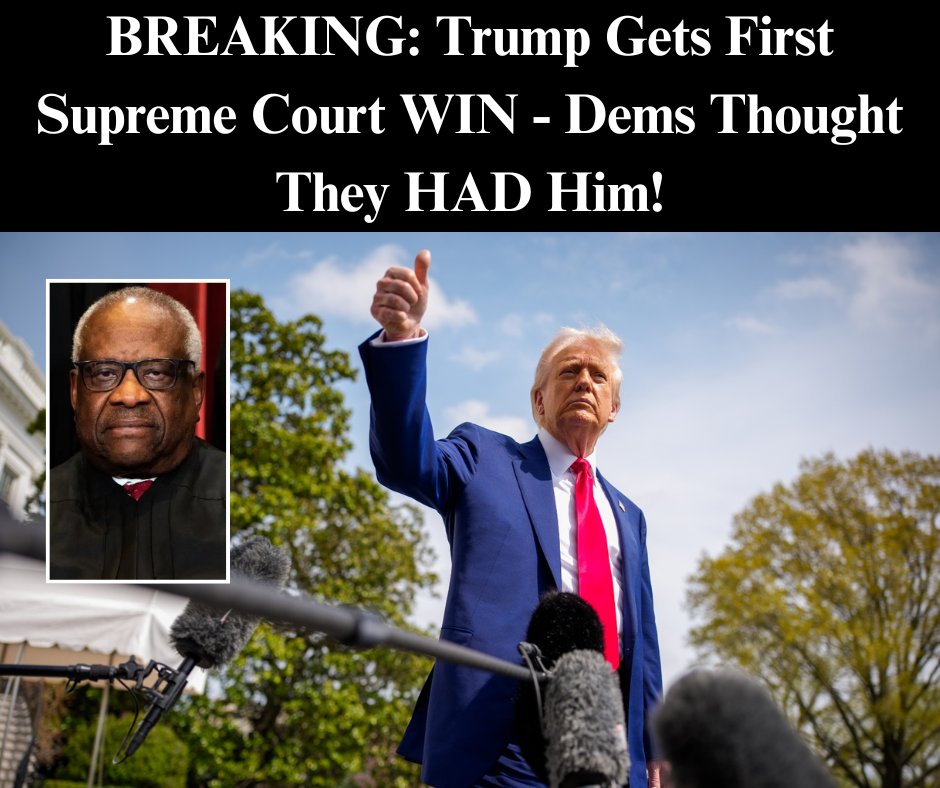The Supreme Court on Friday granted President Donald Trump his first major legal victory since returning to office, allowing his administration to temporarily freeze millions of dollars in federal grants allocated to states for combating teacher shortages.
In a narrow 5-4 decision, the court’s majority sided with the administration, while Chief Justice John Roberts joined the three liberal justices in dissent.
In its unsigned opinion, the court stated that the states had demonstrated sufficient financial resources to maintain their programs independently. However, the justices agreed that the Trump administration presented a strong argument that any funds distributed during the ongoing legal dispute would likely be unrecoverable, CNN reported Friday.
If the states ultimately win the case, the court said, “they can recover any wrongfully withheld funds through” further litigation, the outlet noted.
Justices Sonia Sotomayor, Elena Kagan, and Ketanji Brown Jackson all dissented, each either writing or joining opinions outlining their objections. Roberts noted that he would have denied the stay but declined to elaborate on his reasoning.
The majority consisted of the court’s five conservative justices—Clarence Thomas, Samuel Alito, Neil Gorsuch, Brett Kavanaugh, and Amy Coney Barrett.
“This is unquestionably a win for the Trump administration, but on remarkably narrow and modest terms,” Steve Vladeck, CNN Supreme Court analyst and professor at Georgetown University Law Center, told the outlet.
“It leaves open the possibility that the plaintiffs are going to win not just this case but a bunch of other challenges to the government’s cancellation of grants while freezing the order in this specific case. And even that was a bridge too far for Chief Justice Roberts and the three Democratic appointees,” Vladeck added. “It’s a victory for the government, but a short-lived one that may soon be overtaken by far more significant losses in the other pending cases in which Trump has asked the justices to intervene.”
It remains unclear how much practical impact the Supreme Court’s order will have, as much of the disputed funding may have already been distributed.
However, the court’s majority did weigh in on an important procedural point: the case involved a temporary restraining order (TRO), a type of emergency measure that typically isn’t subject to appeal. By agreeing to review it, the justices signaled a potential shift in how similar legal challenges to Trump administration policies might be handled going forward, CNN said.
The Court indicated that this particular TRO—which was set to expire Monday—functioned more like a preliminary injunction, a broader and appealable court order. That reasoning could pave the way for the administration to challenge other TROs currently blocking parts of Trump’s agenda, the outlet added.
The Supreme Court majority also focused on—and sided with—the Trump administration’s argument that the trial court judge lacked the legal authority to issue the order in the first place.
The justices pointed to an exemption in the Administrative Procedure Act (APA), the law under which the states challenged the grant freeze.
Trump tried to cancel the grants, claiming the funds were being used for programs tied to diversity, equity, and inclusion (DEI) efforts — a frequent, though often vaguely defined, target of his administration. Eight Democratic-led states, including California, Illinois, and New York, which depend on the funding, filed a lawsuit.
A federal judge in Boston temporarily blocked the administration from freezing the grants while the case moved forward. The appeals court upheld that decision, and last week, the administration asked the Supreme Court to intervene through its emergency docket, said CNN.
The administration centered its appeal on a point it has been emphasizing for weeks — both to the public and to the justices: that a lone district court judge should not have the power to set nationwide policy, even temporarily.
“This case exemplifies a flood of recent suits that raise the question: ‘Does a single district-court judge who likely lacks jurisdiction have the unchecked power to compel the government of the United States to pay out (and probably lose forever)’ millions in taxpayer dollars?” acting Solicitor General Sarah Harris argued before the high court.
